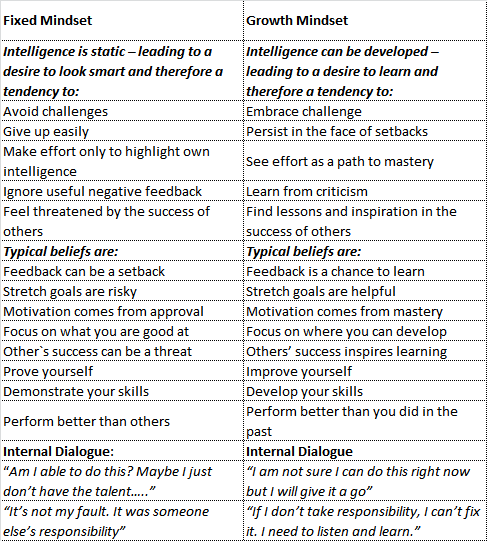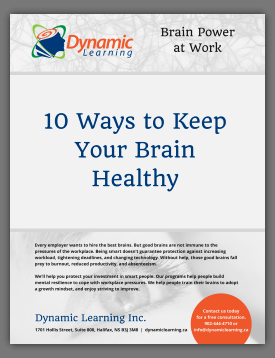 Recently I talked about how to make learning stick, which got me thinking about my own learning. At the same time, I realized from studying a growth mindset vs. a fixed mindset that I had a somewhat fixed mindset about whether I could learn another language. Many years ago when I was 13, my French teacher swept into our classroom in Scotland to begin teaching us French. As soon as she heard my English accent, she said, “English people cannot speak French.”
Recently I talked about how to make learning stick, which got me thinking about my own learning. At the same time, I realized from studying a growth mindset vs. a fixed mindset that I had a somewhat fixed mindset about whether I could learn another language. Many years ago when I was 13, my French teacher swept into our classroom in Scotland to begin teaching us French. As soon as she heard my English accent, she said, “English people cannot speak French.”
I had already suffered from being teased about my English accent since I had joined the school a couple of years before, when my family had moved from England to Scotland. My confidence in trying to speak another language was undermined.
For the next three years, I struggled through French lessons, papers and exams, and was very relieved to drop French for my last two years of high school. Since then I have had a fixed mindset that I couldn’t learn another language and I envied the people who could.
From all the research I have done on how to keep our brains powerful and healthy, I realized one of the best ways to do that is to learn another language. So with much trepidation, I decided to sign up for a 10-week Learn to Speak French course with Alliance Francaise. I am now on Lesson 4 and am amazed and delighted with my progress. I am using two models of learning to help me. One is the growth mindset approach.
In a growth mindset, people believe that their most basic abilities can grow through dedication and hard work – intelligence and talent are just the starting point. They tend to concentrate on continuously growing and learning.
The other learning model is the AGES model for learning, which stands for Attention, Generation, Emotion, and Spacing.
Attention
I have taken the approach that I can get better at speaking French every time I attend closely in class, volunteer to speak French, listen to audio lessons, and practice at home.
Generation
Between episodes of close attention, I use generation, which involves asking myself questions like, “How does this information link to what I already know?” I was quite surprised to find how many French words I recognized. Perhaps the most valuable form of generation is insight, that eureka moment when the unconscious mind solves a problem. This happened to me when our teacher pointed to the window and asked whether it was masculine or feminine. Without hesitation I said la fenêtre – and was surprised to realize I still remembered something I had learned so many years ago.
Emotion
We learn better if we are somewhat emotionally aroused, preferably in a positive way, but even mild negative arousal can help. This is because our hippocampus, which embeds new memory, gets additional signals from our brain regions that respond to arousing stimuli. You can harness moderate emotional arousal to help with your learning. I am fortunate to have a very relaxed and friendly French teacher and a small class. I feel quite confident answering questions in French and am reassured by Maxime’s response – parfait – whenever I am correct. When I am working alone on my French exercises, I remind myself I am making better progress that I expected and I feel pleasantly challenged while I work.
Spacing
Having some space (usually a day or more) between learning and review sessions is probably the most important of the four learning principles. As our brains are constantly working to incorporate new learning into our current long term memory, at least one night of sleep between learning sessions will do wonders to our retention. In terms of spacing between reviews, I also learned the five reviews techniques from Phil Chambers book How to Train Your Memory in which he suggests:
- the first review be within 10 minutes after new learning,
- the second after one day,
- the third after one week,
- the fourth after one month,
- and the fifth after three months.
By then the information will be in your long-term memory, available to you for the rest of your life.
I have signed up to the website Phil Chambers recommended – memrise.com – which offers scheduled reminders and tests aimed mostly at learning languages.
If you have been thinking about learning something new, I encourage you to make the commitment to yourself. Use your growth mindset and the AGES model as tools. You and your brain will benefit enormously.
Contact me to talk about how I can help you or your management team get the most value out of your intelligence and experience. Call me at 902-444-4710 or 866-317-9837, or email epease@eileenpease.com.


